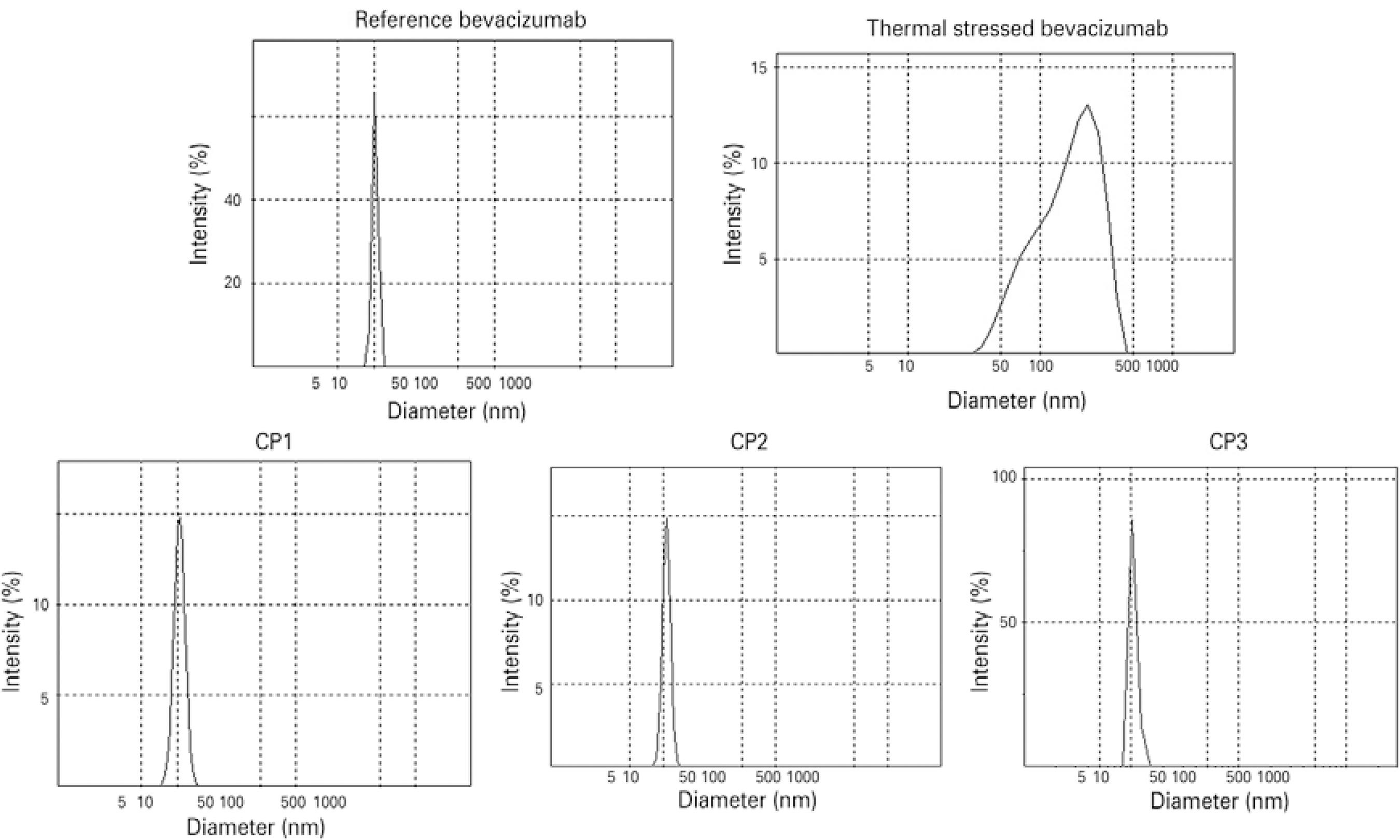ABSTRACT
Purpose:
Avastin® (bevacizumab) is an anti-vascular endothelial growth factor (VEGF) monoclonal antibody given as an off-label drug by intravitreal administration for treatment of ocular diseases. The drug's clinical application and its cost-benefit profile has generated demand for its division into single-use vials to meet the low volume and low-cost doses necessary for intraocular administration. However, the safety of compounding the drug in single-use vials is still under discussion. In this study, the stability and efficacy of Avastin® repacked in individual single-use glass vials and glass ampoules by external compounding pharmacies were evaluated.
Methods:
Polyacrylamide gel electrophoresis (PAGE), size-exclusion chromatography (SEC), dynamic light scattering (DLS), and turbidimetry were selected to detect the formation of aggregates of various sizes. Changes in bevacizumab biological efficacy were investigated by using an enzyme-linked immunosorbent assay (ELISA).
Results:
Repacked and reference bevacizumab showed similar results when analyzed by PAGE. By SEC, a slight increase in high molecular weight aggregates and a reduction in bevacizumab monomers were observed in the products of the three compounding pharmacies relative to those in the reference bevacizumab. A comparison of repacked and reference SEC chromatograms showed that the mean monomer loss was ≤1% for all compounding pharmacies. Protein aggregates in the nanometer- and micrometer-size ranges were not detected by DLS and turbidimetry. In the efficacy assay, the biological function of repacked bevacizumab was preserved, with <3% loss of VEGF binding capacity relative to that of the reference.
Conclusion:
The results showed that bevacizumab remained stable after compounding in ampoules and single-use glass vials; no significant aggregation, fragmentation, or loss of biological activity was observed.
Keywords:
Bevacizumab; Intravitreal injections; Macular edema/drug therapy; Drug stability



